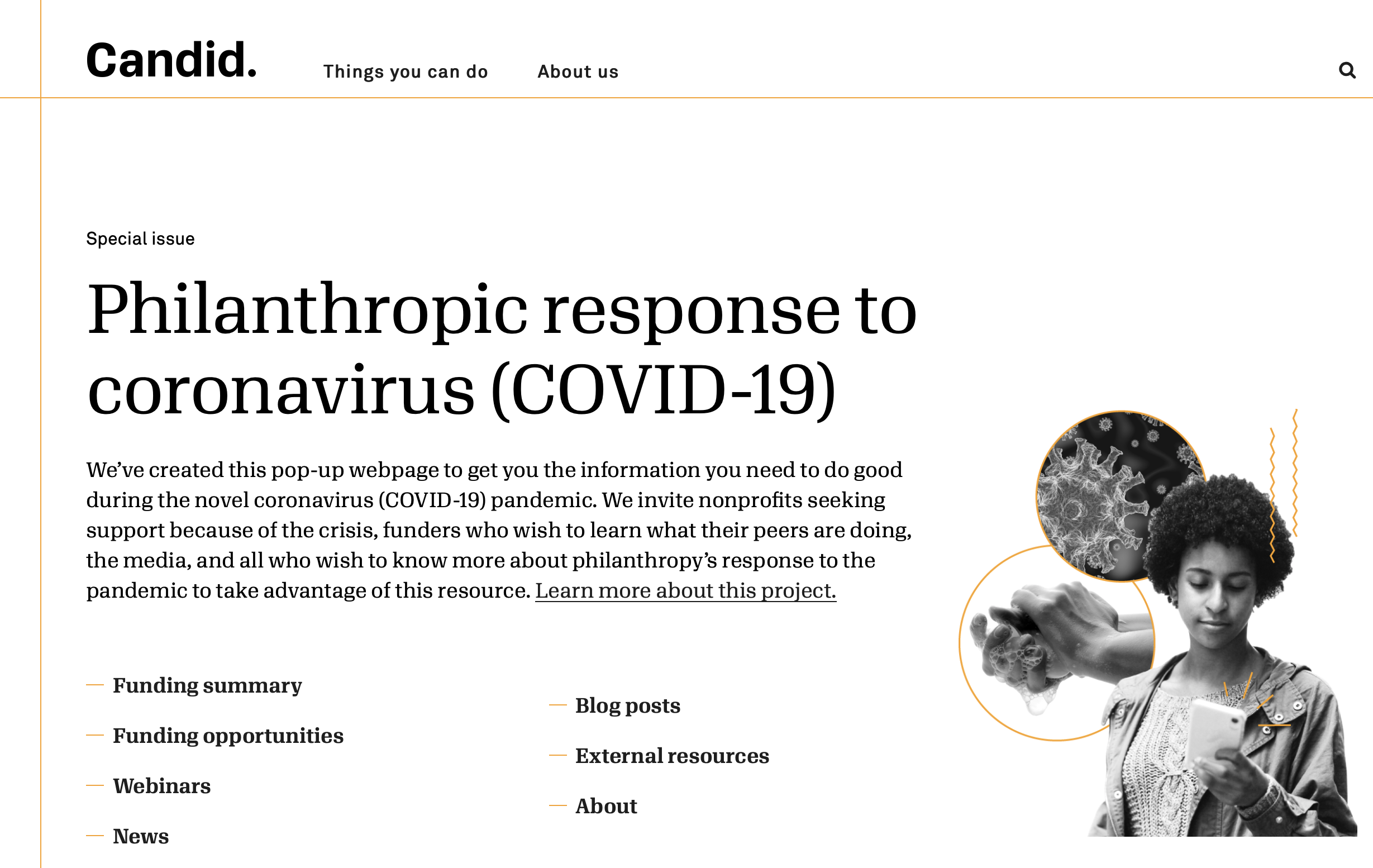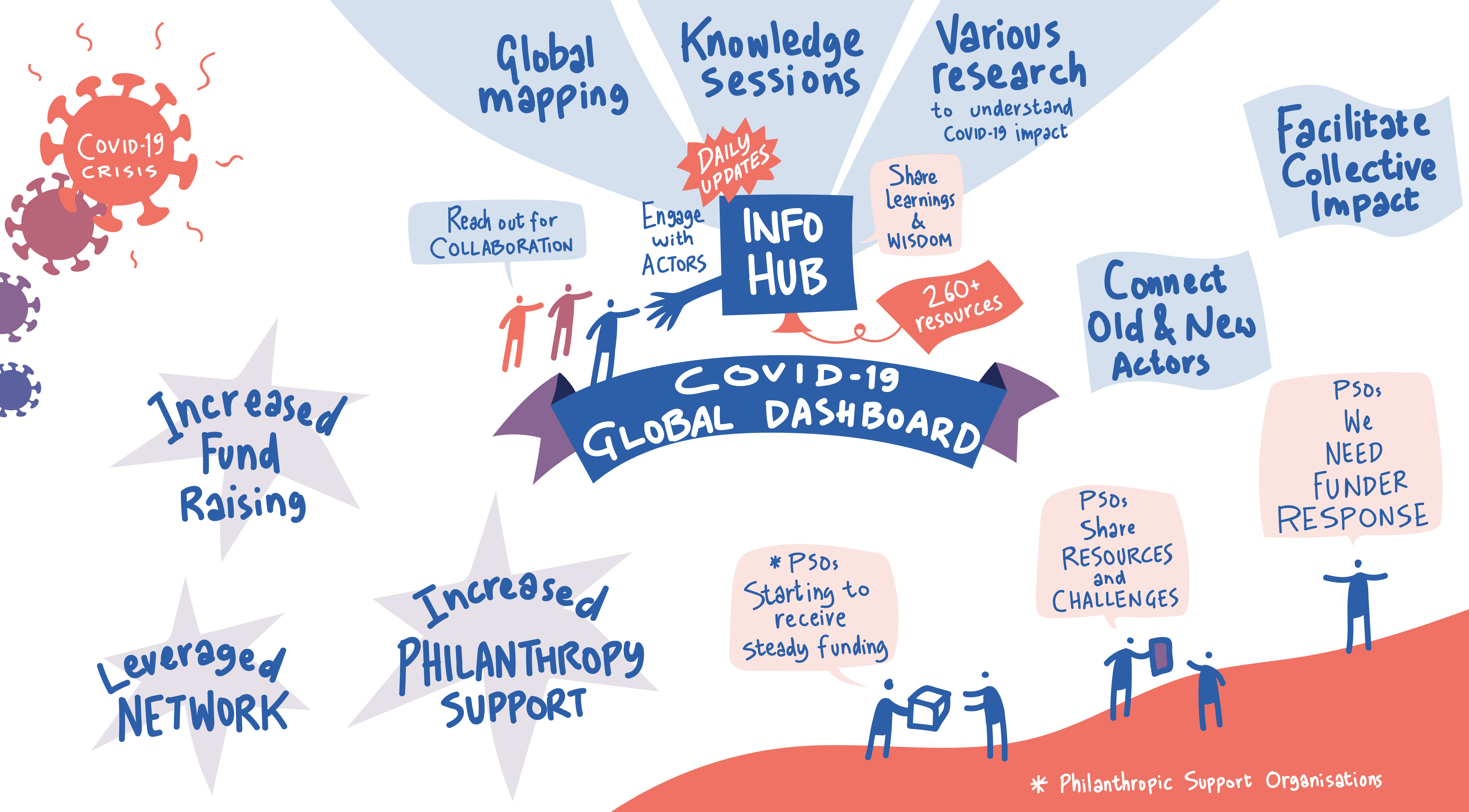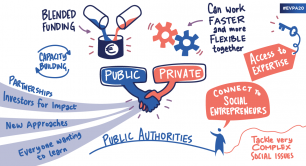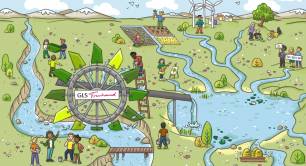Reaching out: Post-pandemic collaborations strengthen world’s philanthropic sector
The Covid-19 pandemic has boosted collaboration and information-sharing among the philanthropic sector which could transform how foundations work in the future.
During a workshop today at the EVPA annual conference, attendees heard about new global databases and research that had been collated since the pandemic hit in March this year. These aimed to identify funding and projects as well as collate thought-leadership articles to help foundations and their support organisations to easily access the data they needed.
 Benjamin Bellegy (pictured), executive director of Wings, a global network of philanthropy associations, academic institutions, support organisations and funders, said: “Philanthropy wasn’t really prepared or fully fit for Covid-19 because of a lack of data…We need a more resilient and fit sector.”
Benjamin Bellegy (pictured), executive director of Wings, a global network of philanthropy associations, academic institutions, support organisations and funders, said: “Philanthropy wasn’t really prepared or fully fit for Covid-19 because of a lack of data…We need a more resilient and fit sector.”
Wings’ response was to build a “one-stop hub” with consultancy Sattva, The Wings Global Philanthropy Resources Hub on Covid-19, bringing together pandemic-focused information relevant to the philanthropic sector, including lists of emergency funds, details of pledges and calls to action, information about capacity-building support, and articles in the media.
Philanthropy wasn’t really prepared or fully fit for Covid-19 because of a lack of data…We need a more resilient and fit sector
“This will help us all leverage this information to better design programmes, anticipate shortfalls and highlight best practice,” said Bellegy. “It showcases the impact of the philanthropic response during the crisis.”
Candid, a US philanthropic support organisation, has dedicated part of its website to a database which brings together information about philanthropic activities all over the world.

So far, said global partnerships research manager Supriya Kumar, the database had identified US$11.9bn of global philanthropic funding dedicated to the pandemic from 38 countries, which was “far beyond previous disasters” but not yet the full picture.
This information, Kumar emphasised, had already given vital information to inform future plans. For example, only 1% of the money was dedicated to disabled people, and just 2% to older people. “It is important to identify what the gaps are,” she said.

Max von Abendroth, executive director of Dafne, the European network of donors and foundations, highlighted a report by McKinsey published in June called Reimagining European Philanthropy. This, he said, had revealed that foundations needed to re-evaluate their work and “transform into agile organisations”.
He pointed out that during the pandemic Dafne members met every Monday at midday and shared their experiences, lessons learned, failures and how they could help each other.
The speakers agreed that this level of global collaboration in the philanthropic community was probably unprecedented.
 Aarti Mohan (pictured), Sattva’s co-founder, said: “We can use the analytics to inform how we co-ordinate across countries in the rebuilding effort.”
Aarti Mohan (pictured), Sattva’s co-founder, said: “We can use the analytics to inform how we co-ordinate across countries in the rebuilding effort.”
Bellegy added: “It will enable [philanthropic organisations] to have more informed strategies and have more impact with their funding – the best possible impact they can have.”
Thanks for reading our stories. As an entrepreneur or investor yourself, you'll know that producing quality work doesn't come free. We rely on our subscribers to sustain our journalism – so if you think it's worth having an independent, specialist media platform that covers social enterprise stories, please consider subscribing. You'll also be buying social: Pioneers Post is a social enterprise itself, reinvesting all our profits into helping you do good business, better.
Illustration by Christopher Malapitan




